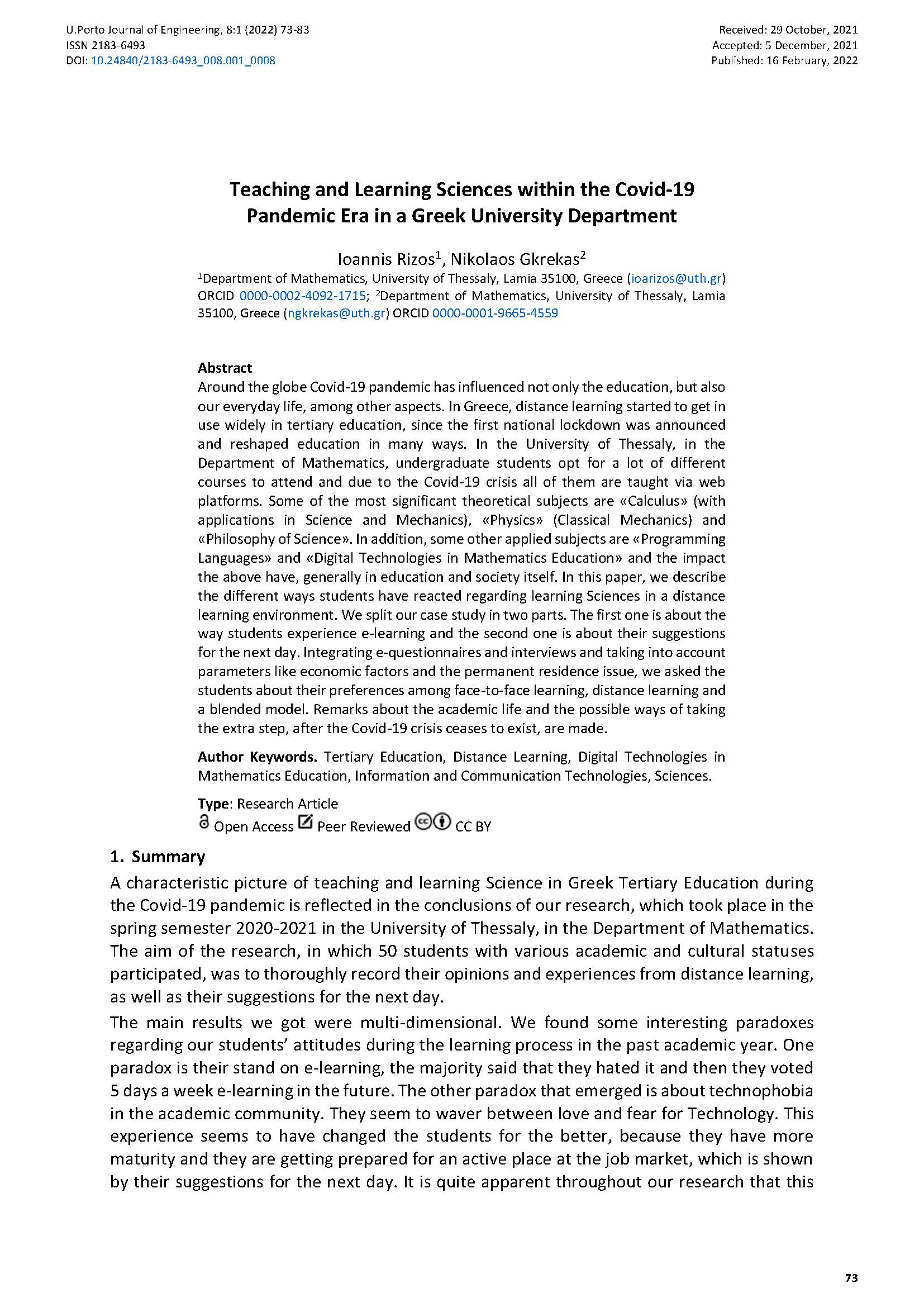Teaching and Learning Sciences within the Covid-19 Pandemic Era in a Greek University Department
Main Article Content
Abstract
Around the globe Covid-19 pandemic has influenced not only the education, but also our everyday life, among other aspects. In Greece, distance learning started to get in use widely in tertiary education, since the first national lockdown was announced and reshaped education in many ways. In the University of Thessaly, in the Department of Mathematics, undergraduate students opt for a lot of different courses to attend and due to the Covid-19 crisis all of them are taught via web platforms. Some of the most significant theoretical subjects are «Calculus» (with applications in Science and Mechanics), «Physics» (Classical Mechanics) and «Philosophy of Science». In addition, some other applied subjects are «Programming Languages» and «Digital Technologies in Mathematics Education» and the impact the above have, generally in education and society itself. In this paper, we describe the different ways students have reacted regarding learning Sciences in a distance learning environment. We split our case study in two parts. The first one is about the way students experience e-learning and the second one is about their suggestions for the next day. Integrating e-questionnaires and interviews and taking into account parameters like economic factors and the permanent residence issue, we asked the students about their preferences among face-to-face learning, distance learning and a blended model. Remarks about the academic life and the possible ways of taking the extra step, after the Covid-19 crisis ceases to exist, are made.
Downloads
Article Details

This work is licensed under a Creative Commons Attribution 4.0 International License.
Authors who publish with this journal agree to the following terms:
- Authors retain copyright and grant the journal right of first publication with the work simultaneously licensed under a Creative Commons Attribution License that allows others to share the work with an acknowledgement of the work's authorship and initial publication in this journal.
- Authors grant the journal the rights to provide the article in all forms and media so the article can be used on the latest technology even after publication and ensure its long-term preservation.
- Authors are able to enter into separate, additional contractual arrangements for the non-exclusive distribution of the journal's published version of the work (e.g., post it to an institutional repository or publish it in a book), with an acknowledgement of its initial publication in this journal.
- Authors are permitted and encouraged to post their work online (e.g., in institutional repositories or on their website) prior to and during the submission process, as it can lead to productive exchanges, as well as earlier and greater citation of published work (See The Effect of Open Access).

